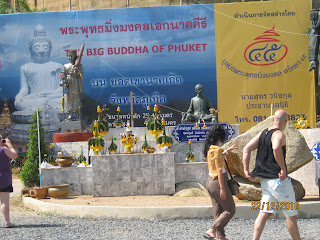Do you believe that you have the power to change things in your life or do you leave it up to chance?
What do you do with the influences of the environment you function in? Do you sulk and blame everything and everyone around you? Or do you pucker up, take responsibility and tackle the “environment”?
Locus of control concerns your attitude and the control you have over life circumstances. According to Michael Wise from the Miami University, locus of control is defined as an individual’s generalized expectancies regarding the forces that determine rewards and punishments.
Locus of control refers to your perception about the underlying main causes of events in your life. Confused? More simply, do you believe that your destiny is controlled by yourself or by external forces?
Locus of control can be divided into:
INTERNAL LOCUS OF CONTROL and EXTERNAL LOCUS OF CONTROL.
Internal locus of control people feels that they can influence their outcome through their own ability, skills and effort. They view events as resulting from their own actions and believe they can make choices to affect their life circumstances. These individuals believe that their behavior is guided by their personal decisions.
External locus of control people on the other hand feel that their outcomes are beyond their control. In other words, they believe that external forces control their outcomes, such as luck. And this also guides their behavior.
There are a few theories centering on locus of control:
- Julian Rotter’s Attribution Theory says that this is a process where people credit forces outside the self as key factors in determining thoughts and behavior. For example, you may think that you need coffee to pay attention during an information session. This can have a negative impact on your believe system. They can feel that they need particular conditions for every situation and this can make them over-dependant.
- Then there is Reinforcement; reward and punishment lead to people holding beliefs about what causes their actions. The Action versus Reaction theory. These beliefs in turn guides what kind of attitudes and behaviors people adopts. This theory you will find alive and kicking in the working environment.
Well, in general it seems to be psychologically healthy to perceive that one has control over those things which one is capable of influencing. A more internal locus of control leads to personal control and self-determination. People functioning more “internal” are more likely to work for achievement, tolerate delays in rewards, are better able to resist coercion, they tend to re-evaluate when failing, are more willing to work on self-improvement and to better themselves and more likely to learn from past experiences. “Internals” take responsibility for the choices they make and the outcomes thereof.
“External” people are more likely to lower their goals after success, they prefer chances and luck, are less likely to seek solutions to their problems, less likely to learn from past experiences and find it difficult to persist in tasks. “Externals” can tend to blame people, situations, work, etc for whatever happens to them, and let “things” rule them.
Although internal locus of control is more preferred, we should be aware that we should not rely on ourselves overly too much, it can lead to resistance to change and over-independence. On the other hand the "externals" can have an overly easy-going and couldn't care less attitude.
I think one of the places locus of control can be seen most clearly is the working environment or corporate world...
Since most of us spent most of our time at work I’m adding this interesting statement in the Bloomberg Businessweek:
"There are two kinds of employees. Some believe they can make things happen, and the others believe that things happen to them. The first group believes that the outcome of their life and career is more or less in their own hands, and they wouldn't have it any other way. The other group takes more of a Forrest Gump approach: They sit around and wait for a bus to take them somewhere.But all in all it boils back to management….we should always have a balance in life....decide how you function….take responsibility….and manage it….effectively….be prepared to listen, to be led...
This distinguishing feature is captured by something called a "core self-evaluation." After more than a decade of research, psychologist Tim Judge has discovered that virtually all superstar employees—from rainmakers in the field to line workers on the floor all the way to big guns in the boardroom—have one thing in common: a high core self-evaluation. Judge describes core self-evaulation as "a person's fundamental bottom line evaluation of their abilities."
Judge and his colleagues have shown overwhelmingly that employees who feel like they control the events in their lives more than events control them and generally believe that they can make things turn out in their favor end up doing better on nearly every important measure of work performance. They sell more than other employees do. They give better customer service. They adjust better to foreign assignments. They are more motivated. They bring in an average of 50% to 150% more annual income than people who feel less control over the fate of their careers. Not surprisingly, these employees also like their jobs a lot more than the Gumps do.”
(Graphics at
http://www.hrcapitalist.com/2009/09/your-external-locus-of-control-is-driving-me-crazy.html, http://completewellbeing.com/article/know-your-loc/, http://frank.mtsu.edu/~studskl/test1rev.html)














